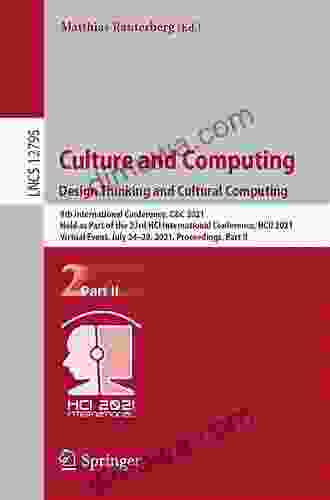Unlocking Personalized Learning: Exploring Adaptive Instructional Systems

In a rapidly evolving educational landscape, where students' needs and learning styles are diverse, adaptive instructional systems (AIS) emerge as a transformative force, paving the way for personalized and effective learning experiences. This comprehensive article delves into the world of AIS, deciphering their adaptation strategies, methods, and the profound impact they wield on the future of education.
Understanding Adaptive Instructional Systems
AIS are intelligent educational systems that dynamically adjust the learning process based on individual student characteristics and performance. They continuously monitor learners' progress, identify gaps in understanding, and tailor instructional content and experiences to cater to specific needs. By leveraging data and sophisticated algorithms, AIS empower educators with real-time insights into students' strengths, weaknesses, and learning preferences.
5 out of 5
| Language | : | English |
| File size | : | 23177 KB |
| Text-to-Speech | : | Enabled |
| Screen Reader | : | Supported |
| Enhanced typesetting | : | Enabled |
| Word Wise | : | Enabled |
| Print length | : | 272 pages |
Adaptation Strategies: Customization and Differentiation
The core of AIS lies in their ability to adapt instruction based on various parameters. Two primary adaptation strategies include:
1. Customization:
AIS customize learning experiences by adjusting the pace, difficulty, and content based on each learner's individual characteristics. Students with prior knowledge or strong foundational skills can progress at a faster pace, while those requiring additional support receive tailored instruction and resources. This differentiated approach ensures that every learner receives instruction that aligns with their unique needs and abilities.
2. Differentiation:
AIS differentiate instruction by providing diverse learning activities, assessment methods, and feedback tailored to different learning styles. Visual learners may benefit from interactive simulations, while auditory learners prefer podcasts or discussions. By adapting to each student's preferred learning modality, AIS enhance engagement, comprehension, and retention.
Adaptation Methods: Sophisticated Algorithms and Artificial Intelligence
AIS employ sophisticated adaptation methods to analyze student data and make informed decisions about instruction. These methods include:
1. Rule-Based Systems:
These systems rely on pre-defined rules and conditions to determine adaptation decisions. For instance, if a student consistently struggles with a particular concept, the AIS may automatically increase the number of practice problems or provide additional support materials.
2. Machine Learning Algorithms:
AIS utilize machine learning algorithms to analyze vast amounts of student data, identifying patterns and correlations. These algorithms can predict learner performance, adjust difficulty levels, and recommend personalized learning paths.
3. Artificial Intelligence (AI):
AI-powered AIS leverage natural language processing and computer vision to personalize instruction even further. They can analyze student interactions, identify cognitive strengths and weaknesses, and provide tailored feedback and guidance.
Impact on Education: Personalized Learning and Improved Outcomes
The adoption of AIS has a profound impact on education, leading to several transformative benefits:
1. Personalized Learning:
AIS enable the creation of truly personalized learning experiences, where each student receives instruction that is tailored to their individual needs, learning styles, and pace. This student-centric approach fosters deep engagement, improves motivation, and empowers learners to take ownership of their education.
2. Improved Learning Outcomes:
By catering to individual learning needs, AIS foster deeper understanding, enhance knowledge retention, and improve academic performance. Students who receive personalized instruction experience greater confidence, reduced anxiety, and a lifelong love for learning.
3. Real-Time Feedback and Intervention:
AIS provide educators with real-time insights into students' understanding and progress. This enables timely intervention, allowing educators to address misconceptions before they become significant obstacles. By identifying struggling learners early on, AIS facilitate early remediation and support.
4. Data-Driven Decision-Making:
AIS generate valuable data that educators can leverage to make informed decisions about instruction, curriculum development, and resource allocation. This data-driven approach improves teaching practices, optimizes learning environments, and ensures that educational resources are utilized effectively.
The Future of Education: AIS as a Catalyst for Transformation
As the educational landscape evolves, AIS are poised to play an increasingly critical role in shaping the future of learning. Their potential to personalize instruction, enhance learning outcomes, and bridge educational disparities is vast.
Continued advancements in technology, such as the integration of AI and virtual reality, will further expand the capabilities of AIS. These systems will become even more sophisticated, providing learners with highly contextualized and immersive learning experiences.
Educators must embrace the transformative potential of AIS and work collaboratively with technologists to integrate these systems into teaching practices. By harnessing the power of adaptation, we can unlock the full potential of every learner and create a truly equitable and empowering educational system for all.
Adaptive instructional systems represent a paradigm shift in education, ushering in an era of personalized learning and improved outcomes. Their adaptation strategies and methods, powered by sophisticated algorithms and AI, empower educators with unparalleled insights into students' progress. By tailoring instruction to individual needs and providing real-time feedback, AIS foster deep engagement, enhance comprehension, and promote a lifelong love for learning. As technology continues to advance, AIS will undoubtedly revolutionize the educational landscape, providing learners with access to truly transformative and equitable learning experiences.
5 out of 5
| Language | : | English |
| File size | : | 23177 KB |
| Text-to-Speech | : | Enabled |
| Screen Reader | : | Supported |
| Enhanced typesetting | : | Enabled |
| Word Wise | : | Enabled |
| Print length | : | 272 pages |
Do you want to contribute by writing guest posts on this blog?
Please contact us and send us a resume of previous articles that you have written.
 Book
Book Novel
Novel Page
Page Chapter
Chapter Text
Text Story
Story Genre
Genre Reader
Reader Library
Library Paperback
Paperback E-book
E-book Magazine
Magazine Newspaper
Newspaper Paragraph
Paragraph Sentence
Sentence Bookmark
Bookmark Shelf
Shelf Glossary
Glossary Bibliography
Bibliography Foreword
Foreword Preface
Preface Synopsis
Synopsis Annotation
Annotation Footnote
Footnote Manuscript
Manuscript Scroll
Scroll Codex
Codex Tome
Tome Bestseller
Bestseller Classics
Classics Library card
Library card Narrative
Narrative Biography
Biography Autobiography
Autobiography Memoir
Memoir Reference
Reference Encyclopedia
Encyclopedia Andrew Shvarts
Andrew Shvarts Tiphanie Yanique
Tiphanie Yanique Thomas Koshy
Thomas Koshy Cathy Yardley
Cathy Yardley Jeff Gerke
Jeff Gerke Kore Yamazaki
Kore Yamazaki Steven Duggan
Steven Duggan Susan Apps Bodilly
Susan Apps Bodilly Sylvan Learning
Sylvan Learning T J Smith
T J Smith N Dia Rae
N Dia Rae Todd Sperl
Todd Sperl Vlado Damjanovski
Vlado Damjanovski Barbara Nefer
Barbara Nefer Susan Thomas
Susan Thomas Yvonne Carroll
Yvonne Carroll Mallory Monroe
Mallory Monroe William Robert Stanek
William Robert Stanek Pat Cunningham Devoto
Pat Cunningham Devoto Leigh Statham
Leigh Statham
Light bulbAdvertise smarter! Our strategic ad space ensures maximum exposure. Reserve your spot today!

 Christian BarnesAdvanced Finite Element Methods With Applications: Unlock the Frontiers of...
Christian BarnesAdvanced Finite Element Methods With Applications: Unlock the Frontiers of...
 Edison MitchellSweet and Inspirational Historical Western Romance: Second Chance Out West
Edison MitchellSweet and Inspirational Historical Western Romance: Second Chance Out West
 William PowellHow Much Do You Understand Pittsburgh Steelers: Uncover the Gridiron Legacy...
William PowellHow Much Do You Understand Pittsburgh Steelers: Uncover the Gridiron Legacy... Gregory WoodsFollow ·15k
Gregory WoodsFollow ·15k Carson BlairFollow ·13.4k
Carson BlairFollow ·13.4k Dalton FosterFollow ·17.4k
Dalton FosterFollow ·17.4k Ira CoxFollow ·8.8k
Ira CoxFollow ·8.8k Dylan HayesFollow ·15.6k
Dylan HayesFollow ·15.6k Branson CarterFollow ·4k
Branson CarterFollow ·4k Alvin BellFollow ·9.3k
Alvin BellFollow ·9.3k Gilbert CoxFollow ·13k
Gilbert CoxFollow ·13k

 F. Scott Fitzgerald
F. Scott FitzgeraldLove Me Better, Love Me Right: A Journey of...
Unveiling the Profound Power of Emotional...

 Eddie Powell
Eddie PowellHow To Make Your Muzzleloader Most Effective And Keep It...
In the realm of firearms, muzzleloaders hold...

 Andy Hayes
Andy HayesPrepare Mentally, Physically, and Emotionally for the...
Embark on a Transformative Odyssey to...

 Oliver Foster
Oliver FosterThe Bittersweet Bride: Advertisements for Love
A Poignant...
5 out of 5
| Language | : | English |
| File size | : | 23177 KB |
| Text-to-Speech | : | Enabled |
| Screen Reader | : | Supported |
| Enhanced typesetting | : | Enabled |
| Word Wise | : | Enabled |
| Print length | : | 272 pages |










